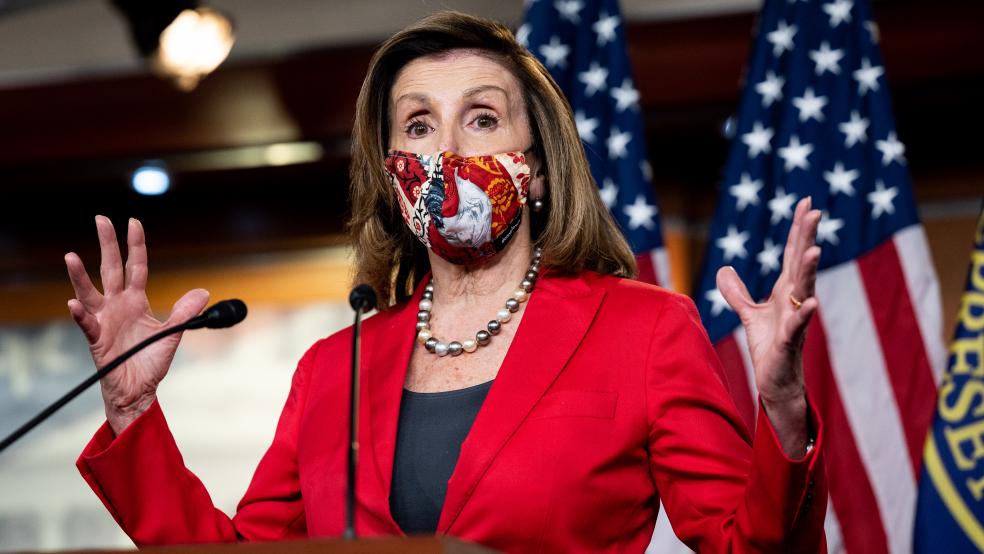The House on Tuesday adopted a $3.5 trillion budget resolution, taking a major step toward enacting President Biden’s ambitious economic agenda that calls for increased spending on education, health care and renewable energy.
The 220-212 vote along partisan lines followed days of negotiations between Speaker Nancy Pelosi (D-CA) and a group of centrist Democrats who threatened to withhold their support unless the House voted first on a different piece of legislation, the $1 trillion infrastructure package passed on a bipartisan basis in the Senate earlier this month.
Pelosi struck a deal with the centrist holdouts, led by Rep. Josh Gottheimer (D-NJ), to allow the vote on the budget resolution to proceed, agreeing to hold a House vote on the bipartisan infrastructure bill on or before September 27 in exchange for the moderate’s support of the budget resolution.
The deadline is technically non-binding, but Pelosi said she plans to stick to it. “I am committing to pass the bipartisan infrastructure bill by September 27,” Pelosi said Tuesday. “I do so with a commitment to rally House Democratic support for its passage.”
Unlocking reconciliation – and potential headaches: The passage of the budget resolution unlocks the reconciliation process, which Democrats plan to use to pass Biden’s agenda with simple majorities, bypassing a Senate filibuster that could kill the bill.
But the agreement threatens to break the “two-track” link Pelosi has established between the bipartisan infrastructure bill, which has relatively broad support, and the reconciliation bill, which faces a more difficult path, with Democrats needing to resolve internal disagreements over the size of the package.
Although Pelosi wants to advance the two bills together in order to maximize internal unity and minimize dissent, Democrats will have a tough time completing the sprawling reconciliation bill before September 27. If the bipartisan infrastructure bill passes on that date, Democrats could then face potentially crippling infighting over the size of the reconciliation bill, with moderates pushing for substantial reductions in spending.
Progressives send a message: On the heels of Tuesday’s successful vote, a group of liberal Democrats signaled their intention to stick to Pelosi’s plan, with a focus on passing the larger — and in their eyes, more important — reconciliation bill first. Rep. Pramila Jayapal (D-WA), chair of the Congressional Progressive Caucus, which has nearly 100 members, released a statement saying, “Our position remains unchanged: we will work to first pass the Build Back Better reconciliation bill so we can deliver these once-in-a-generation, popular, and urgently needed investments to poor and working families, and then pass the infrastructure bill to invest in our roads, bridges, and waterways.”
The bottom line: Democrats took a big step toward passing Biden’s agenda Tuesday, but the process leading up to the vote suggests there could be more conflict ahead, and a very difficult path to negotiate for Democratic leaders this fall.
Read more about the vote at Roll Call, The Washington Post and The Wall Street Journal.




